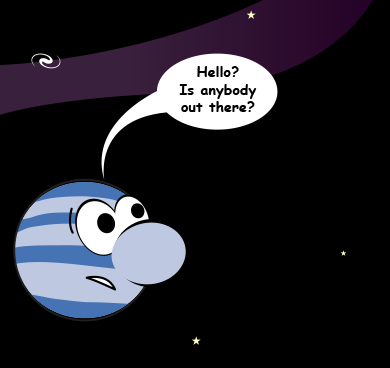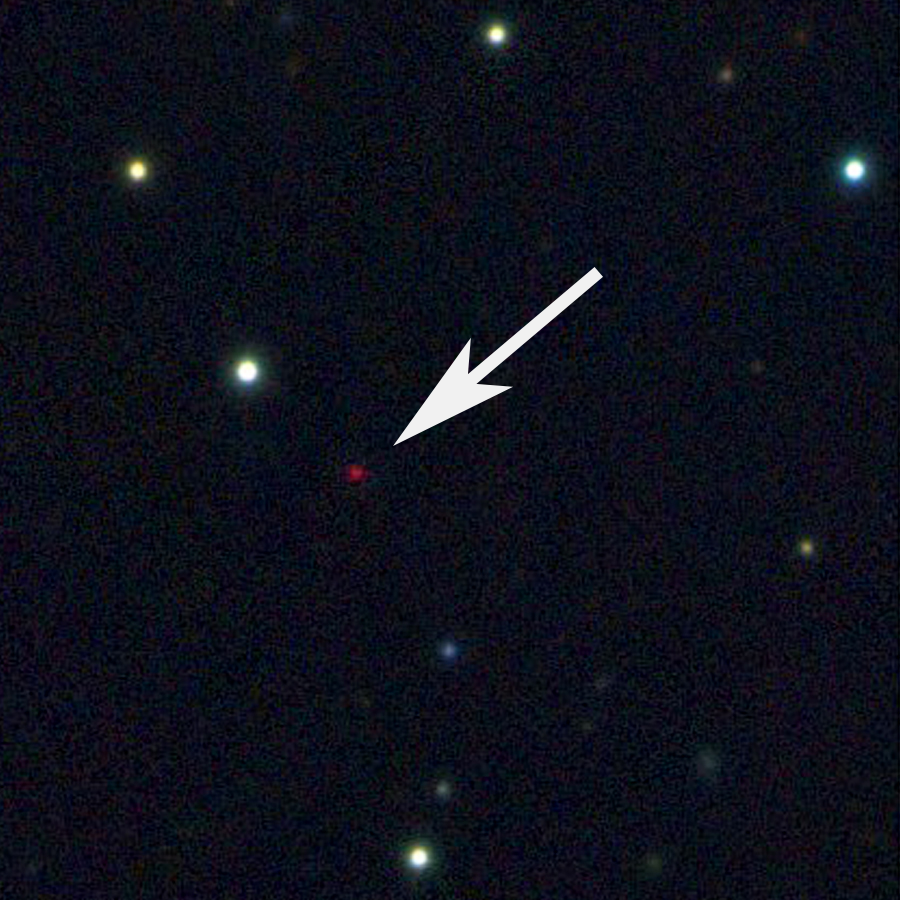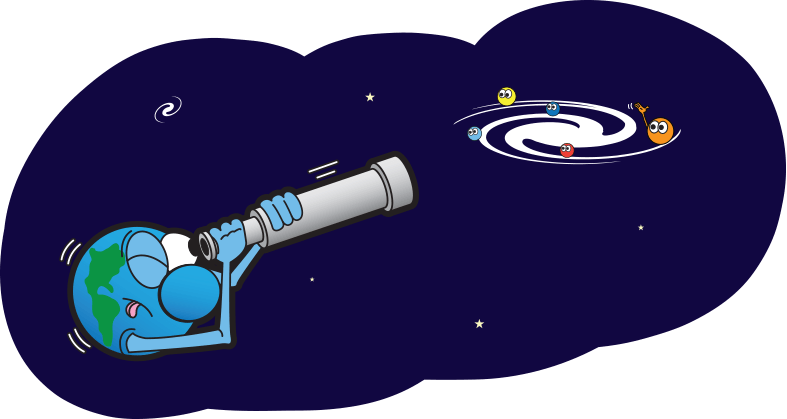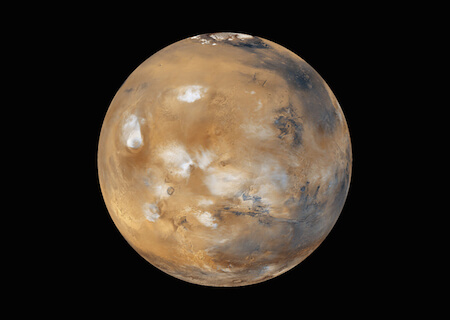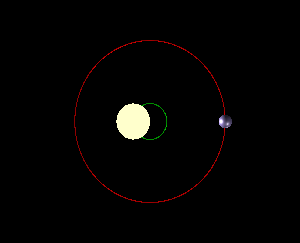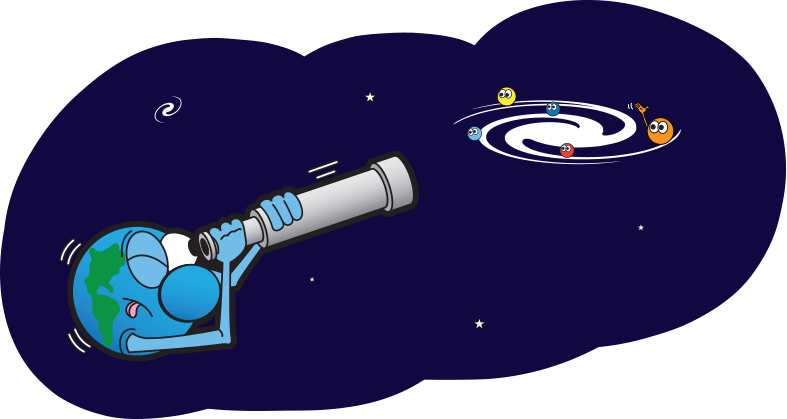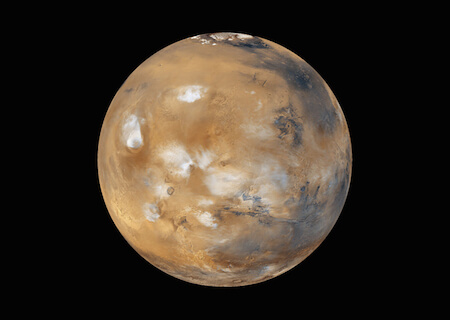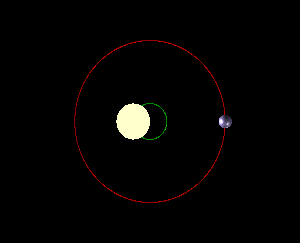A Planet Without a Sun?
For years, a group of scientists had been looking through the night sky for a special kind of murky, dim star. These stars don’t emit much light, so they are pretty hard to find.
What they did find was even more unlikely. They came across a planet. There are planets zipping around many stars in our galaxy. This one was different. It was hanging out all by its lonesome—drifting aimlessly in space without a star to warm it or keep it company.
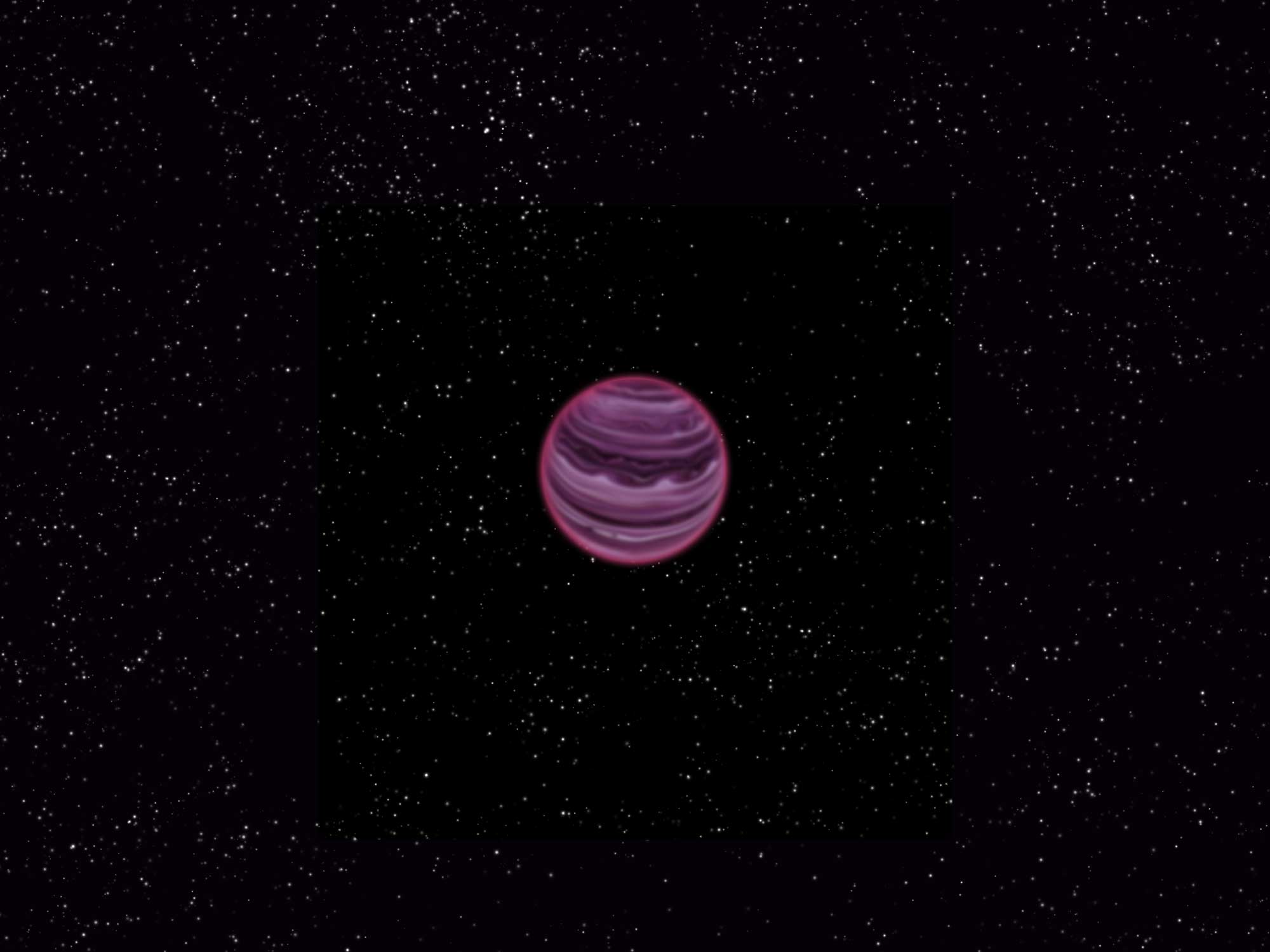
This is an artist's idea of what this lonely Jupiter-like planet might look like. Credit: MPIA/V. Ch. Quetz.
When most people think of planets, they think of large spheres of rock (like Earth), ice (like Neptune), or gas (like Jupiter) circling around a bright, warming star. That makes sense. Planets form from the material left over from when a star is born.
But this object has everything else you might expect from a planet. In fact, it appears to be a lot like Jupiter, only much bigger.
So what is this super-Jupiter doing way out in the middle of nowhere? Gravitational forces might have flung it away from a star, leaving it to fly off into space. Or perhaps this planet formed in an entirely different and unknown way. Scientists don’t know for sure!
A Big Discovery
This is an exciting find. It is the first really good evidence that planets without suns actually exist. It’s also exciting because this planet is very young. It could help scientists figure out what planets like Jupiter were like when they first formed.
But there is something even more exciting about this planet. Without the blinding light of a star next to it, scientists are actually able to see this strange and faraway world with powerful telescopes. How cool is that?



